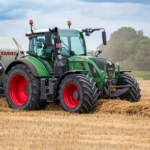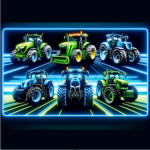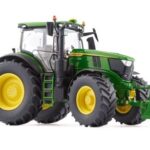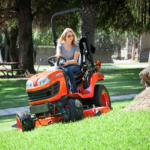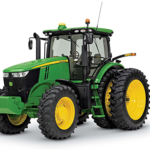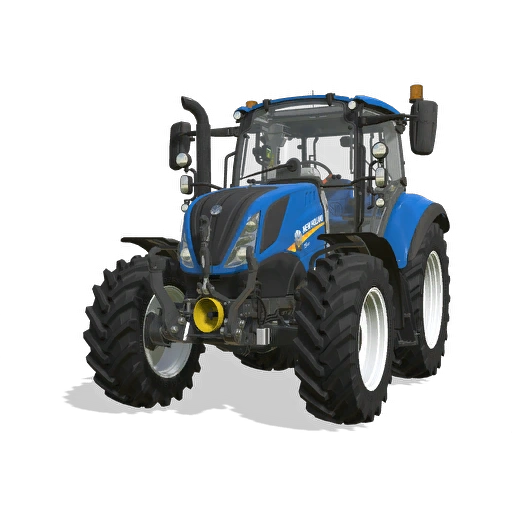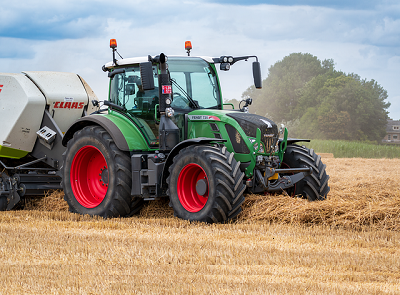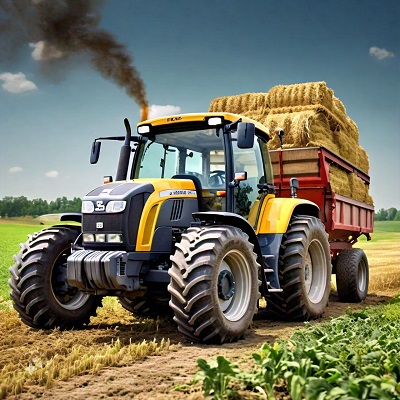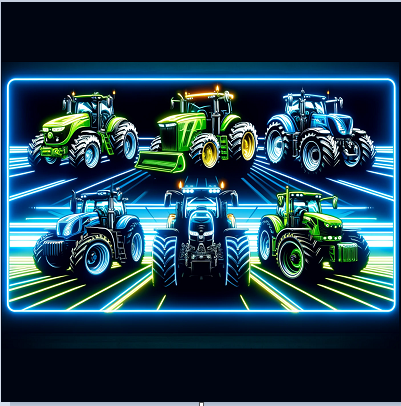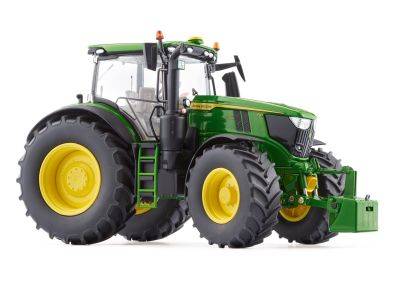A Complete Guide
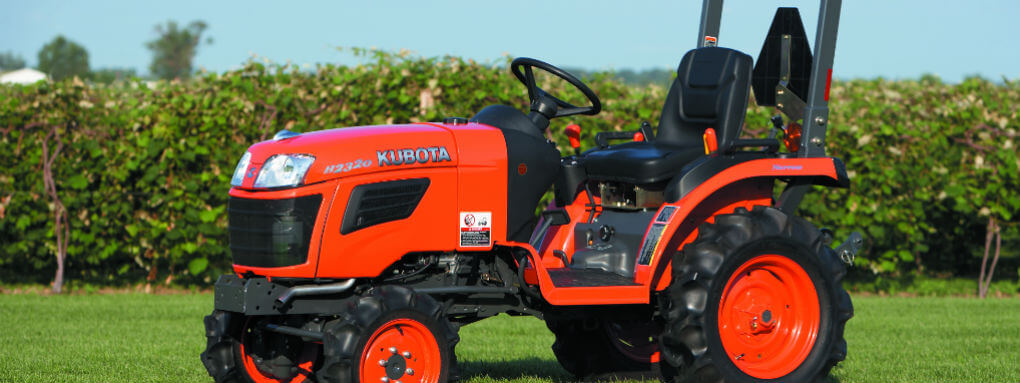
Small-scale farms are vital to regional agriculture and methods of sustainable agriculture, and they have a big impact on the farming community. Selecting the proper equipment, particularly tractors, is essential to small farms’ success. Selecting the ideal tractor for a small farm can significantly improve output, effectiveness, and manageability. The best tractors for tiny farming operations are examined in this article, along with their features, advantages, and reasons for being the best for different small-scale agricultural applications.
Understanding the Needs of Small Farms
Just before getting into particular tractor models, it’s critical to comprehend the particular needs of small farms. Small farms, in contrast to large-scale farming operations, frequently have
- Limited space and tighter fields.
- Diverse crop varieties.
- Multi-functional needs (tilling, mowing, etc.).
- Budget constraints.
Considering these aspects, a small farm should have a tractor that is sturdy, fuel-efficient, lightweight, adaptable, and reasonably priced.
Top Tractors for Small Farms
1. John Deere 1025R
In the agricultural industry, John Deere is a brand that is linked with quality, and the 1025R model is proof of this claim.
Key Features:
- Engine: 23.9 HP diesel engine.
- Transmission: Hydro static transmission.
- Hydraulics: Twin Touch foot controls.
- Attachments: Compatible with a wide range of implements such as loaders, mowers, and backhoes.
Why It’s Great for Small Farms:
- Compact Size: Ideal for maneuvering in tight spaces.
- Versatility: Can handle a variety of tasks, from mowing to digging.
- User-Friendly: Easy-to-use controls and comfortable seating make it suitable for farmers of all skill levels.
2. Kubota L2501
Kubota is well known for producing dependable and effective equipment, and their L2501 model is particularly noteworthy for small farms.
Important characteristics:
- Engine: 24.8 HP diesel engine.
- Transmission: Gear-drive or hydrostatic transmission options.
- Hydraulics: Strong lifting capacity is provided by hydraulics.
- Attachments: Supports a large variety of attachments, such as box blades and rotary tillers.
Why Small Farms Will Love It:
- Durability: Designed for years of use with little maintenance.
- Strong Performance: Relative with comparable tractors in its class, it is capable of doing more difficult duties.
- Efficiency: Lower running expenses are guaranteed by fuel-efficient engines.
3. Massey Ferguson GC1725M
The GC1725M type is designed specifically for small farm operations, and Massey Ferguson is a well-known name in the farming community.
Important characteristics:
- Engine: 24 HP diesel engine.
- Transmission: Hydrostatic transmission.
- Hydraulics: High-performance 3-point hitch.
- Attachments: Suitable for backhoes, loaders, and mowers.
Why Small Farms Will Love It:
- Compact Design: Ideal for tiny gardens and farms.
- Ease to Use: Excellent explanation and straightforward controls.
- Versatile: Able to use various attachments for a range of purposes.
4. Mahindra 1626
Mahindra is known for producing tough and reliable tractors, and the 1626 model is no exception.
Key Features:
- Engine: 26 HP diesel engine.
- Transmission: Hydrostatic or gear transmission options.
- Hydraulics: Robust hydraulic system for lifting and carrying.
- Attachments: Supports a wide range of implements, from mowers to snowblowers.
Why Small Farms Will Love It:
- Heavy-Duty Performance: Capable of handling more intensive tasks.
- Comfort: Ergonomic design with easy-to-reach controls.
- Affordability: Offers great value for its price.
5. New Holland Workmaster 25S
New Holland’s Workmaster series is designed for small to medium-sized farms, and the 25S model is particularly suitable for smaller operations.
Key Features:
- Engine: 24.7 HP diesel engine.
- Transmission: Hydrostatic transmission.
- Hydraulics: Efficient 3-point hitch system.
- Attachments: Compatible with loaders, backhoes, and mid-mount mowers.
Why It’s Great for Small Farms:
- Reliability: Known for its durability and low maintenance.
- Compact and Maneuverable: Ideal for tight spaces and smaller plots.
- User-Friendly: Simple and intuitive controls.
Factors to Consider When Choosing a Tractor for a Small Farm
- Dimensions and Flexibility
The tractor’s size is important for small farms. The perfect tractor is a little one that can fit into narrow areas and fields with ease. Make sure the tractor is powerful enough to complete required duties but still compact enough to manoeuvre around garden plots and into barn spaces. - Strength and Efficiency
The tractor’s capacity to carry out different duties is determined by its horsepower (HP). Tractors with 20–30 HP are usually adequate for small farms. Think about the kind of work you’ll be performing; compared to mowing and hauling, ploughing and tilling take more power. - Adaptability and Connectivity
For a small farm, a multi functional tractor with multiple attachment options will be more advantageous. Seek out tractors that can operate equipment such as backhoes, loaders and cultivators. Because of its adaptability, you can use the tractors for a variety of jobs, making the most of your investment. - Fuel Economy
On a small farm, energy consumption is a crucial factor in cost-saving measures. Diesel engines generally to be less costly to run and deliver greater torque for heavy-duty activities. Be sure the tractor you select strikes a balance between power and fuel efficiency. - Management and Stability
Stability and ease of servicing are crucial factors. Tractors should be made suitable for regular use and diverse weather conditions. Opt for types noted for durability and low cost of maintenance to avoid repeated repairs and downtime. - Budget
Budget is usually a crucial factor for small farms. While it’s easy to go for the cheapest choice, investing in a reliable, adaptable tractor may save funds over the long term by decreasing maintenance expenses and increasing productivity.
Some Final Thoughts on the Best Tractors for Little Farms
A small farm’s best tractor should be chosen after careful examination of several variables, such as size, power, flexibility, and budget. Excellent options that satisfy various demands and tastes include the Mahindra 1626, Kubota L2501, New Holland Workmaster 25S, Massey Ferguson GC1725M, and John Deere 1025R. These models each have a special set of attributes that can greatly increase small farm operations’ productivity and efficiency.
Choosing the appropriate tractor is essential for maintaining the viability and prosperity of your small farm, not merely for increasing output. You can make farming more productive, efficient, and pleasurable by selecting a tractor that meets your unique demands. The correct tractor will serve as your essential travelling companion on the path to a prosperous small farm, whether you’re transporting products, mowing the lawn, or ploughing fields.
Always keep in mind that the ideal vehicle for your small field is one that fits your particular requirements and improves your farming skills so you may continue to cultivate your land in an efficient and sustainable manner for many years to come.
Also read: Types of Tractors
